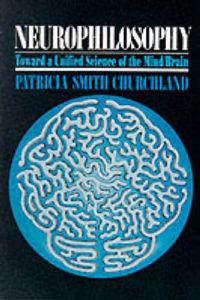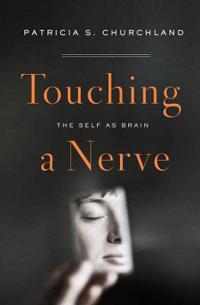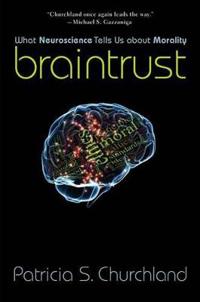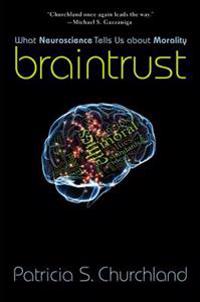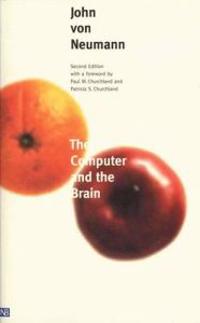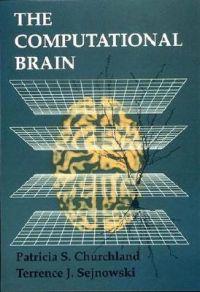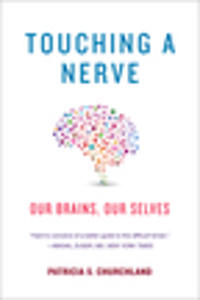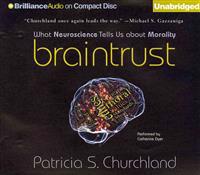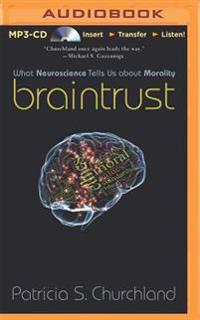Neurophilosophy (Häftad)
avPatricia Churchland
ISBN: 9780262530859 - UTGIVEN: 198901Five chapters in the book's first part, "Some Elementary Neuroscience," sketch the history of the science of nervous systems and provide a general introduction to neurophysiology, neuroanatomy, and neuropsychology. In the second part, "Recent Developments in the Philosophy of Science," chapters plac[...]
Touching a Nerve (Inbunden)
avPatricia Churchland
ISBN: 9780393058321 - UTGIVEN: 201308At the heart of Touching a Nerve is the question of what happens when we accept that everything we feel, think and experience stems not from an immaterial soul but from electrical and chemical activity in our brains. Patricia Churchland, one of the pioneers of neurophilosophy, explains what the late[...]
Braintrust (Inbunden)
avPatricia Churchland
ISBN: 9780691137032 - UTGIVEN: 201102What is morality? Where does it come from? And why do most of us heed its call most of the time? In "Braintrust", neurophilosophy pioneer Patricia Churchland argues that morality originates in the biology of the brain. She describes the 'neurobiological platform of bonding' that, modified by evoluti[...]
Braintrust (Häftad)
avPatricia Churchland
ISBN: 9780691156347 - UTGIVEN: 201208What is morality? Where does it come from? And why do most of us heed its call most of the time? In "Braintrust," neurophilosophy pioneer Patricia Churchland argues that morality originates in the biology of the brain. She describes the "neurobiological platform of bonding" that, modified by evoluti[...]
The Computer and the Brain (Pocket)
avJohn Von Neumann, Paul M. Churchland, Patricia Smith Churchland
ISBN: 9780300084733 - UTGIVEN: 200011This book represents the views of one of the greatest mathematicians of the twentieth century on the analogies between computing machines and the living human brain. John von Neumann concludes that the brain operates in part digitally, in part analogically, but uses a peculiar statistical language u[...]
The Computational Brain (Häftad)
avPatricia S. Churchland, Terrence J. Sejnowski
ISBN: 9780262531207 - UTGIVEN: 1994-03How do groups of neurons interact to enable the organism to see, decide, and move appropriately? What are the principles whereby networks of neurons represent and compute? These are the central questions probed by The Computational Brain. Churchland and Sejnowski address the foundational ideas of th[...]
Touching a Nerve (Häftad)
avPatricia S. Churchland
ISBN: 9780393349443 - UTGIVEN: 2014-08At the heart of Touching a Nerve is the question of what happens when we accept that everything we feel, think and experience stems not from an immaterial soul but from electrical and chemical activity in our brains. Patricia Churchland, one of the pioneers of neurophilosophy, explains what the late[...]
Braintrust: What Neuroscience Tells Us about Morality [With Bonus Disc] (CD-bok)
avPatricia S. Churchland, Catherine Dyer
ISBN: 9781491531037 - UTGIVEN: 2014-08What is morality? Where does it come from? And why do most of us heed its call most of the time? In "Braintrust," neurophilosophy pioneer Patricia Churchland argues that morality originates in the biology of the brain. She describes the "neurobiological platform of bonding" that, modified by evoluti[...]
Braintrust: What Neuroscience Tells Us about Morality (Övrigt)
avPatricia Smith Churchland, Catherine Dyer
ISBN: 9781491531273 - UTGIVEN: 2014-08What is morality? Where does it come from? And why do most of us heed its call most of the time? In "Braintrust," neurophilosophy pioneer Patricia Churchland argues that morality originates in the biology of the brain. She describes the "neurobiological platform of bonding" that, modified by evoluti[...]

